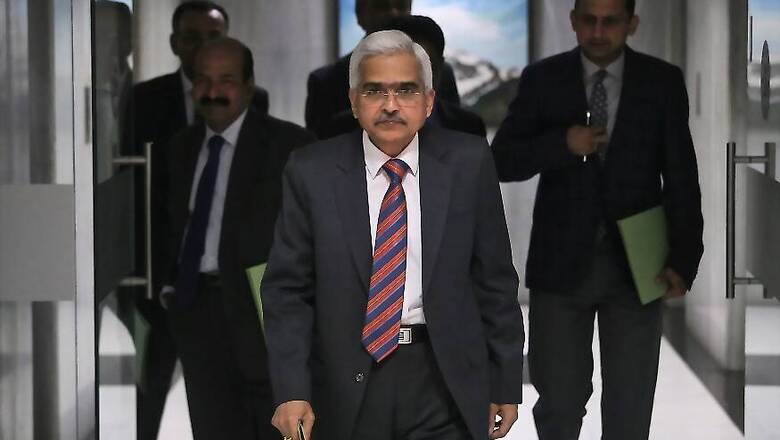
views
New Delhi: Reserve Bank of India (RBI) Governor Shaktikanta Das in an interview with CNBC-TV18 cautioned that Saudi Aramco oil crisis could affect India's capital account deficit along with fiscal deficit numbers.
"Depending on how long it persists, it will have some impact on the current account deficit and perhaps on fiscal deficit if it lasts longer," said Das on Monday.
Crude oil prices rose sharply on Monday after an attack on Saudi Arabia's oil facilities cut over 5 percent of the global oil supply.
"Broadly, if you look at it, Saudi oil production represents roughly about 10 percent of the world oil production and supply and the information that we have in the public domain, it is evident that roughly 50 percent of that, that means roughly 5 percent of the total global output is affected because of the drone strikes in the Aramco oil installations," Das elaborated.
The news raises a lot of concerns into the market especially for India, which is the third-largest oil consumer in the world. Saudi Arabia is the second-largest supplier of crude oil and cooking gas to India. The nation's 85 per cent of imported oil comes from the OPEC countries, which has come down lately due to the crisis in Iran and Venezuela.
Explaining the immediate impact of the attack, Das said, "There is going to be an impact on the crude prices, there will be an impact on currencies across the world and the markets also and you would have seen since morning it is impacting Indian currency."
Saudi Arabia is the world's biggest oil exporter and the attack on state-owned producer Saudi Aramco's crude processing facilities at Abqaiq and Khurais has cut output by 5.7 million barrels per day. The company has not given a timeline for the resumption of full output.
"According to some estimates it may take 2-3 months but I would like to wait for the official position from the Saudi authorities on how much time they are going to take to fill up this gap which has been created. So temporarily there will be some impact whether this temporary effect will last longer, I think the picture will become clearer in the next few days," added Das.
International benchmark Brent crude futures rose by as much as 19.5 percent to $71.95 per barrel, the biggest intraday jump since January 14, 1991. By 12.03 PM, the front-month contract was at $66.31, up $6.09, or 10.1 percent, from its previous close.
















Comments
0 comment